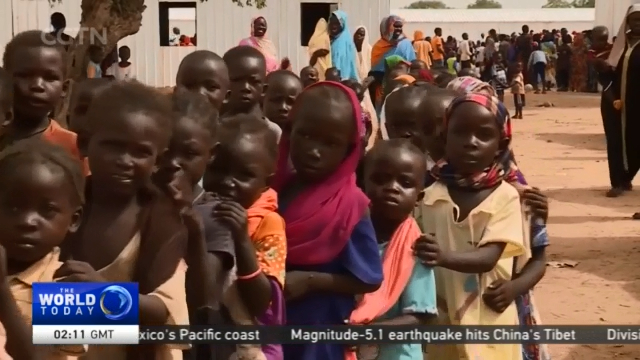
10:51, 28-Sep-2018
Global Refugee Crisis: Problem reaches record-high with 68.5 mln displaced worldwide
Updated
10:28, 01-Oct-2018
03:27

For a fifth year in a row, global refugee numbers have reached a new record high, with 68.5 million people now displaced by violence, war or persecution. As new crises emerge and existing hotspots getting hotter, the UN is scrambling to contain a problem that presents no easy solutions. CGTN's Nick Harper in New York looks back on the past year of the migration crisis, and paints a grim picture.
Fleeing for their lives, carrying their most precious possessions. Since last August, around 700,000 Rohingya Muslims have endured many miles and much misery to escape violence in Myanmar that the UN says could constitute genocide.
NINETTE KELLEY, DIRECTOR UN REFUGEE AGENCY, NEW YORK "It's a human tragedy of enormous proportions. People came over to Bangladesh in a flood, in a very short period of time. It was one of most rapidly rising situations of forced displacement that we've seen in decades."
Other new hotspots have flared up in the past year. Fresh fighting in the Democratic Republic of the Congo forced tens of thousands of people a day to make the precarious crossing of Lake Albert into Uganda - a country already hosting over 1.4 million refugees.
While the economic and constitutional crisis in Venezuela has pushed people to the country's borders looking for better opportunities abroad.
LOUIS CHARBONNEAU, DIRECTOR HUMAN RIGHTS WATCH "So much more pressure could be put on the Maduro government to improve but it hasn't happened. Hopefully that will change, hopefully we will see a more proactive effort in both the Human Rights Council and here in New York. But it remains to be seen if that's going to happen."
But new problems arise without old ones being solved. And tented cities in South Sudan, Lebanon, and Iraq, continue to swell.
NINETTE KELLEY, DIRECTOR UN REFUGEE AGENCY, NEW YORK "These conflicts are starting to mushroom and not being mitigated enough, and not being solved. So what we're seeing is a global rise in enforced displacement."
But while the UN is engaged in aid efforts in multiple countries, it's been criticized for not doing enough to engage repressive or complicit governments.
MICHAEL JOHN WILLIAMS, DIRECTOR OF INTERNATIONAL RELATIONS NEW YORK UNIVERSITY "Where is the UN in all of these migrant crises around the world. It doesn't seem like the UN is really leading on these issues in these localities, nor is there really talking about this as a global issue."
NICK HARPER UNITED NATIONS, NEW YORK "And despite anti-migrant rhetoric in some western nations, it's not these wealthier countries coming to the aid of the world's displaced. The UN estimates 85% are hosted by poorer, developing countries."
Just this month, the U.S. reduced the number of refugees it will accept next year to 30,000 from 45,000 in 2018. While Hungary this year has slashed its daily quota of asylum seeker admissions to just two, down from 60 in 2016.
But at this year's General Assembly the migrant issue will be largely sidelined until the UN's intergovernmental conference in Marrakech in December. Until then, the UN hopes the millions of migrants and refugees will be remembered as more than just statistics. Nick Harper, CGTN, New York.

SITEMAP
Copyright © 2018 CGTN. Beijing ICP prepared NO.16065310-3
Copyright © 2018 CGTN. Beijing ICP prepared NO.16065310-3